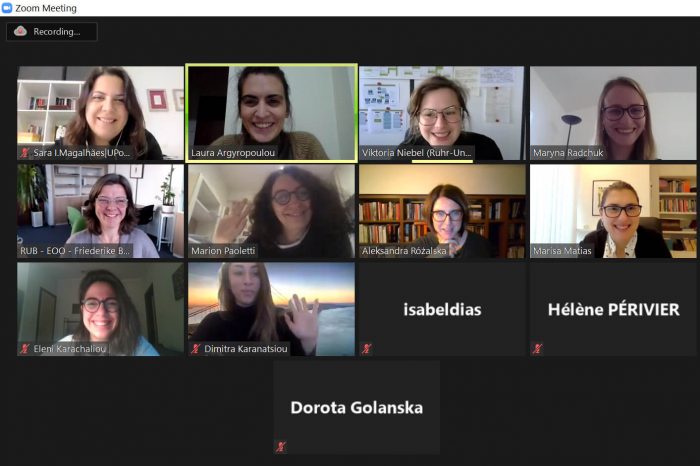Seven large-scale European universities engaged for gender equality and scientific excellence
A four-year large-scale project starting in January 2021, the RESET project – for Redesigning Equality and Scientific Excellence Together – aims to put gender equality and diversity at the heart of scientific and academic policy-making.
With a total budget of EUR 3M, the project will leverage on the systemic and cultural barriers in women’s careers in research and academia, from the enrolment for a PhD to their accession to a tenured position. It will also act to ensure greater participation of women at all levels of strategic scientific positions of leadership and to support the inclusion of gender in research and innovation activities.
Selected in the H2020 Science with and for Society (SWAFS) call for projects to support research organisations to implement Gender Equality Plans, RESET is implemented by a consortium of European universities, with the common characteristics of being nationally awarded forms of excellence labelling, programmes and clusters: University of Bordeaux, Aristotle University of Thessaloniki, University of Łódź, University of Porto, Ruhr-University Bochum, University of Oulu, Sciences Po Paris.
Supporting equality in academia in addressing layers of discrimination, co-designing new processes impacting scientific careers and strategic policy-making
RESET is a matrix for structural change based on two principles: intersectionality – a scientific approach to observe the dynamics of how race, class, gender, and other individual characteristics “intersect” with one another and overlap – and co-design.
“Universities must spearhead equality and diversity policy-making”, says Marion Paoletti, Equal Opportunities Officer at the University of Bordeaux and the driving force behind this ambitious programme. “We consider equality and diversity as the keys to fully unlock our communities’ potential and respond in the most pertinent manner to societal needs and challenges”. The intersectional approach implemented in RESET actions will allow a deeper understanding of the state of play in each university and support appropriate, innovative policy-making.
Fostering collective intelligence is an important aspect of RESET. Its member universities consider that effective, long-lasting, systemic and cultural change is achieved when user-centered. Almost all RESET actions foreseen in the local actions plans (Gender Equality Plans) are therefore designed to fully be participatory. The local project teams will rely on the involvement of all communities within academia, from top management to the researchers. An expected impact of RESET is make co-design a regular practice for policy-making, integrated in full in the institutional academic culture.
Tying RESET’s actions for equality to a definition for scientific excellence
Scientific excellence is concept widely used in the academic and research communities. It is ever more often a pre-requisite to pursue a scientific career, to promote one’s research work. “This concept remains however fuzzy, and tends, under an assumption of neutrality, to be detrimental to women’s careers in research and academia.” The dissemination of excellence-driven incentives to develop and fund research growth may amplify this tendency, and eventually counteract the existing work to support women in science. “In RESET, we choose to support women’s careers, promotions and representation in science in providing a definition for scientific excellence: impact-driven, user-centered, and inclusive research, innovation and training, providing solutions for sustainable societal goals.”

